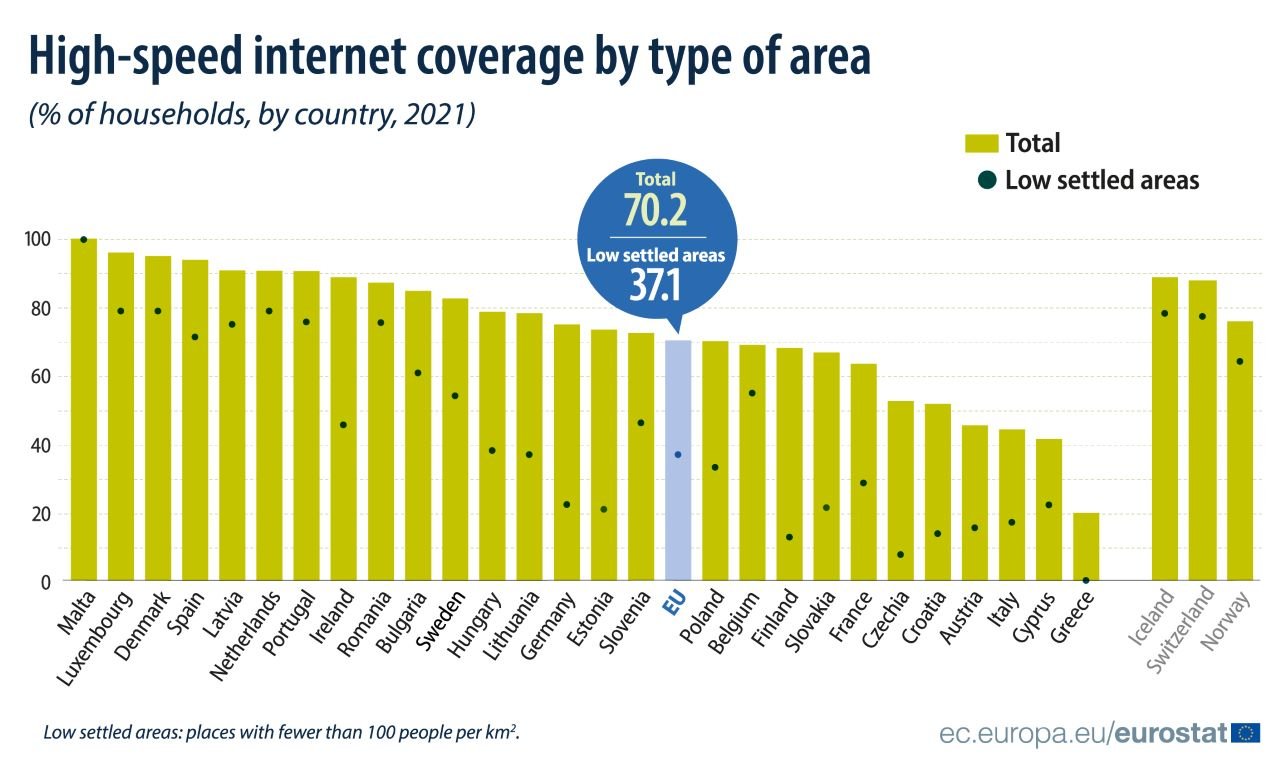29 April 2024
To ensure faster deployment of digital network infrastructure across Europe, today the Council adopted the gigabit infrastructure act, which will replace the 2014 broadband cost reduction directive (BCRD). The new law aims to simplify and accelerate the roll-out of high-speed networks, such as fibre and 5G, with a view to achieving Europe’s connectivity objectives and targets set out in the digital compass for this decade.
The adoption of the gigabit infrastructure act reflects our commitment to tackle administrative burden and boost the roll-out of high-speed networks. This will allow our citizens to surf faster and have a better digital experience using fibre or 5G.
Petra De Sutter, Belgian deputy prime and minister of public administration, public enterprises, telecommunication, and postal services
The new regulation also aims to lower the unnecessarily high costs of the deployment of high-capacity networks partially caused by permit-granting procedures. The latter will be simplified through a mandatory conciliation mechanism between public sector bodies and telecom operators. The new legislation will further provide more transparency and ensure efficient planning for operators of public electronic communications networks.
To achieve better access to information society services by the public and the enterprises, the gigabit infrastructure act also addresses deployment and access to in-building physical infrastructure.
Moreover, the new law allows some degree of flexibility to member states, such as carve-outs for critical national infrastructure.
Finally, given that the present retail price cap for regulated intra-EU communications will expire on 14 May 2024, the current caps of €0,19 per minute for calls and €0,06 per SMS message are extended until 30 June 2032 to ensure protection, especially for vulnerable consumers.
Next steps
The text will be published in the EU’s Official Journal in the coming days and enter into force three days after this publication. The new law will apply 18 months after its entry into force with some specific provisions applying at a later stage.
Background
The digital targets on which the BCRD was based have either been reached or become obsolete since 2014. Other factors have made its revision necessary as well. Low returns on equity and high investment costs that prevail in the telecom industry have started to derail the progress to reach the 2030 digital targets of the digital decade policy programme with an investment gap of around €65 billion annually.
The Commission (Thierry Breton, commissioner for internal market) submitted the proposal for the gigabit infrastructure act in February 2023. Alin Mituta (Renew Europe / RO) was the European Parliament’s rapporteur on this file and a provisional agreement between the co-legislators was reached on 6 February 2024.
- Gigabit infrastructure act, 29 April 2024
- Gigabit infrastructure act: Council and Parliament strike a deal for faster deployment of high-speed networks in the EU (press release, 6 February 2024)
- Gigabit infrastructure act, Council’s progress report, 3 June 2023
- Gigabit infrastructure act, Commission proposal, 23 February 2023
- Broadband cost reduction directive (BCRD), 23 May 2014

